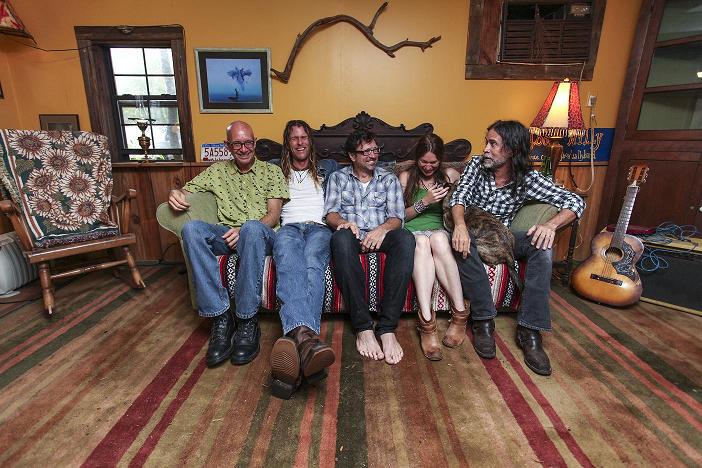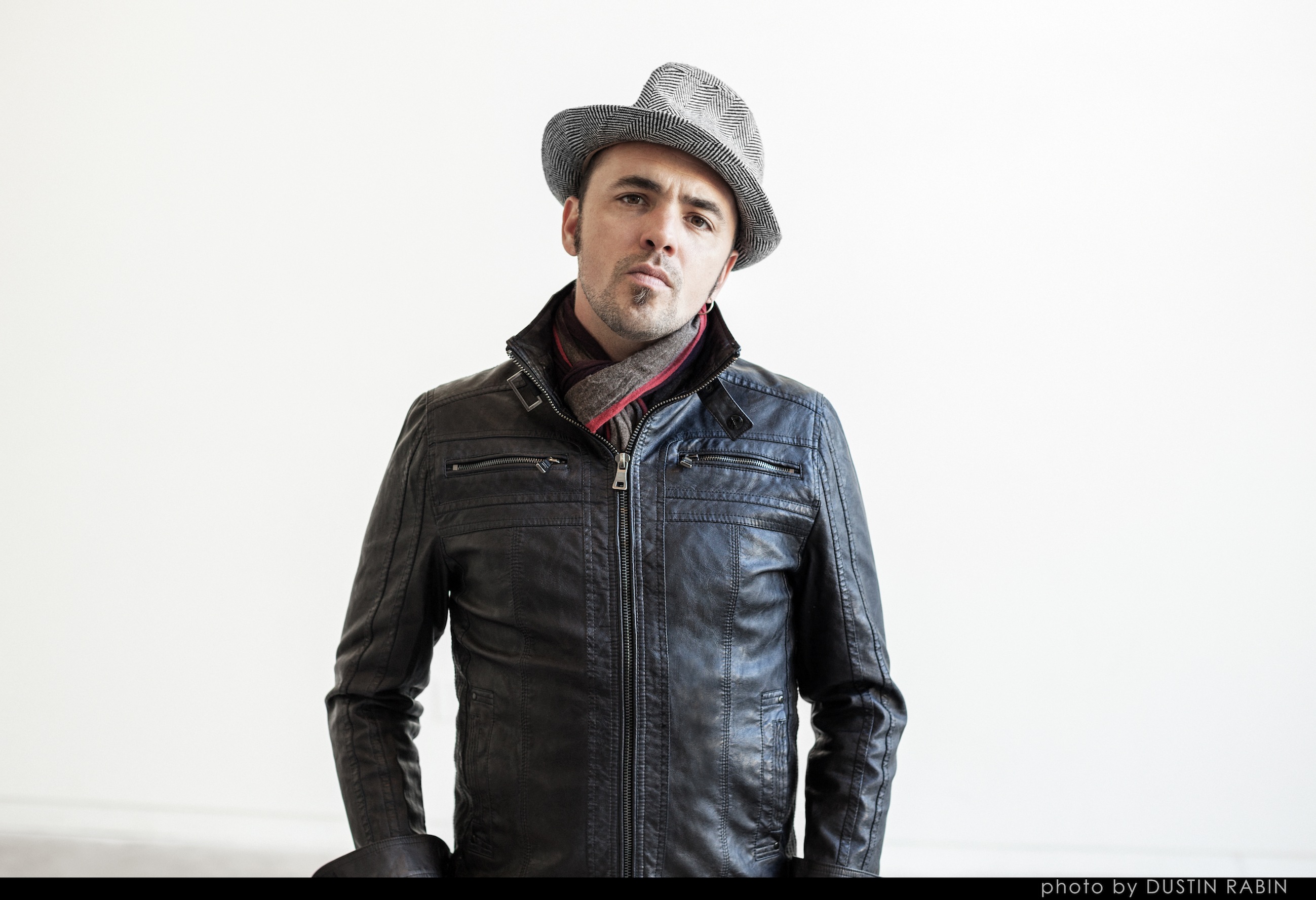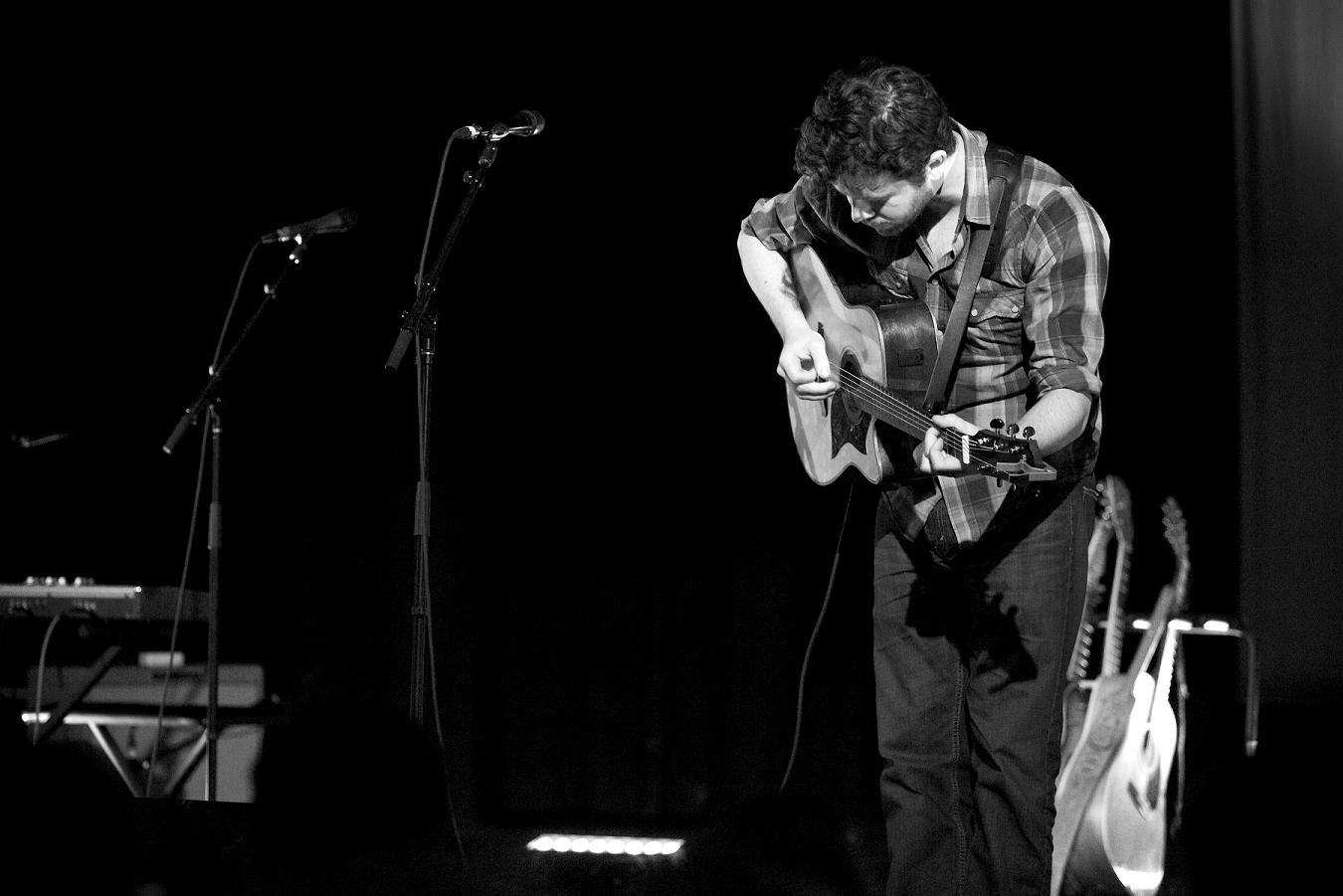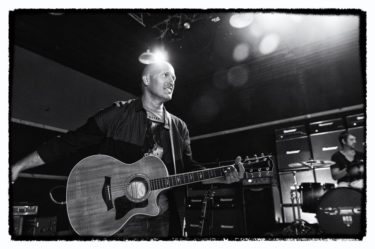Interview: Willie Sugarcapps
When there’s more than one proficient songwriter in a band, it can sometimes be tricky to effectively manage the creative dynamic, but the Americana group, Willie Sugarcapps, seem to have that problem under control. Consisting of musicians all distinctly known in the Gulf Coast of Alabama – Will Kimbrough, Grayson Capps, Corky Hughes, and the duo Sugarcane Jane featuring Anthony Crawford and Savana Lee – they collectively produce music that dazzlingly highlights each of their gifts.
In April of 2016, they released their sophomore record, Paradise Right Here. The album is fittingly titled as it’s a burst of positivity leaving the listener in a blissful and jubilant mood. Frequently emphasizing their four-part harmonies and switching lead vocal duties between Kimbrough, Capps, Crawford, and Lee, the group delivers an intriguingly striking sound, with Hughes guitar adding a distinctive flair. They’re lyrical wizards of traditional storytelling, drawing on their own thoughts and experiences about dreams, spirituality, and tales of their hometowns.
Here, the three main songwriters – Kimbrough, Capps, and Crawford – discuss how they distinguish a Willie Sugarcapps tune from their own and the role improvisation and spontaneity play in their concerts.
Laura Antonelli (Songfacts): When I interviewed Anthony Crawford, he said that Willie Sugarcapps doesn’t write together and you all just bring your own songs to the group. Can you describe the writing process that works best for each of you?
Will Kimbrough: I try to keep my eyes and ears open all the time for the bones of my next song: things people say, melodies I hear in my head, and little musical parts I may stumble across. I write them down or record them on my phone. Whatever I need to do to keep the idea for later when I have the time to sit down with it. So writing for me is a 24/7 pursuit.
Grayson Capps: The songs that I wrote for this record were inspired by the four-part harmonies created by the group. I’m an introverted sort of writer, but I wrote these songs (“Mancil Travis” and “May We Love”) specifically channeling what I know we do live.
Anthony Crawford: Sometimes while we are on a road trip, we have the opportunity to take long soundchecks and we get inspired. It’s when individual ideas are brought to the band and become solidified.
Songfacts: How do you differentiate between a Willie Sugarcapps song and a song you want to keep for your own individual projects?
Will: I look for something universal rather than something personal. I look for something that will sound good with all four voices on there. I look for something that will give us a platform for live improvisation.
Grayson: Writing with vocal harmony in mind is what differentiates a Willie Sugarcapps song from a Grayson Capps song.
Anthony: Savana and I have a young family. We sing about this when we do our Sugarcane Jane shows. The songs we do with Willie Sugarcapps tend to be less personal and open for big groove.
Songfacts: You recorded your sophomore album, Paradise Right Here, in just three days at FAME Studios in Muscle Shoals, Alabama. What was your experience like recording there?
Will: Studio A at Fame Studios in Muscle Shoals is a VERY special sounding room for recording music. We experienced that very special sound and it was inspiring.
Grayson: I was proud to be with pros like Anthony, Savana, Will, and Corky. We just worked through the songs focused and sure with flowing respect toward each other’s ideas.
Anthony: Magical is appropriate to use when afforded the opportunity to record in a room steeped in deep historical records. We came back home and did some tweaking, and then handed it off to the great and wonderful Trina Shoemaker [who produced the record] to finish the process.
Songfacts: The title comes from the last song written by Will Kimbrough, “Paradise Right Here.” Why did you decide to name the record after it?
Will: The “paradise” in “Paradise Right Here” is the paradise you find wherever we take our music.
Grayson: I think we are all of the same opinion that “wherever you go, there you are,” and if you are constantly searching for paradise outside of yourself, you will miss what is in your own backyard. Plus, there is a paradisiacal acknowledgement of our mutual appreciation of the beautiful Gulf Coast where we’re from.
Anthony: It was just perfect to sum up the sentiment of the whole record.
Songfacts: Will, the first song on the album, “Dreamer’s Sky,” has the lyrics in it, “I’ve been a dreamer all my life. You could say I’ve dreamed it away.” The last tune, “Paradise Right Here,” features similar lyrics, “It’s my job to be a dreamer. I’ve dreamed my life away.” Is there a story connecting those two songs together and was it intentional to start and finish the album with them?
Will: When I was young, my father told me I was living in a dream world. At the time, he was trying to straighten me up to fly right. Now I treasure the part of my life that is a dream world – the love of my children, my music – these loves can put you in a dreamy place. I embrace it. I support my family off of stuff I dream up. It’s amazing.
Songfacts: Anthony, “Faded Neighborhood” has a yearning and sentimental feel to it. How did that one come to be and what inspired you to write it?
Anthony: My friend Gina Winwood (Steve Winwood’s wife) came to me with this lyric. I fell in love with the sentiment of how we all feel about going back home many years later and remembering our youth. I was fortunate enough to help her with developing the music and the melody. I am proud to be a part of the song. Savana’s voice is a thing of beauty. She nailed it.
Songfacts: Grayson, “Mancil Travis” is about a homeless man from Brewton, Alabama. Can you explain what motivated you to write that song and the story happening in it?
Grayson: Mancil Travis – I have always had a fascination with this character from my hometown. When I put pen to paper to recount stories I knew of him, I kept hearing this dream sequence in my head that was Willie Sugarcapps harmonies singing like a Greek chorus, “White carnations.” I’ve had empathy toward what Carson McCullers calls “the invisible people” all my life and was inherently interested in what redeemed Mancil, what fueled Mancil, what destroyed Mancil, etc. The indefinable conflict of what I imagined existed in the character’s head is played out in Corky’s guitar solos once resolving again into the white carnation dream sequence, and, secondly, resolving into the reality of his wrecked life and his last-ditch attempt at dignity by simply wearing a white carnation, his hope, his flame, despite his constant failings. I think everyone wants redemption including Mancil.
Songfacts: Anthony, “Intentions of My Heart” has a great energy to it. What triggered you to write that one?
Anthony: This song is of spiritual origin and relates to my inner voice and awareness. It is a bit abstract, however, the music draws you in – a lot of my songs are like that. Maybe it is because I have a difficult time focusing on one thought for too long. My mind is all over the map.
Songfacts: Grayson, “May We love” speaks about trying to find harmony amongst the conflicts caused by religion and war. Can you reveal what specifically moved you to write it and the tale occurring in it?
Grayson: This was motivated by once again Willie Sugarcapps harmonies and then coffee, NPR, marijuana, The Prophet by Kahlil Gibran, and an epiphany: “Once we define ourselves, we separate ourselves from others, thus, creating animosity and disharmony.” Only by first acknowledging that we are living beings together here on this planet before labeling ourselves as anything else can we hope for peace on Earth. May We Love.
Songfacts: Will, can you talk about Magnolia Springs, Alabama and why you wanted to write and name a song after it?
Will: I left my beloved Lower Alabama 28 years ago to live in Nashville. I love Nashville, but I miss the Gulf Coast, the wetlands, and the Delta of Lower Alabama every day. Magnolia Springs is a sweet little town in reality, but, in my heart, it is a kind of mythological oasis. I have a memory of stopping there on a burning hot summer afternoon and cooling off in the shade and the water. I relive the memory every time I cross the Magnolia River. My memory is probably not accurate, but it’s a wonderful memory. So Magnolia Springs lives in my heart as a beautiful, cool, watery place.
Songfacts: You’re all strong and successful songwriters/musicians with your own projects, so what has been the biggest challenge coming together collectively as a group that you’ve encountered?
Will: Willie Sugarcapps is a haven for me. I look forward to getting together, playing, singing, laughing with my friends and bandmates every time.
Grayson: The biggest challenge we have, in my opinion, is getting to the gigs as separate entities. We need a bus!
Anthony: The challenge would be finding a show long enough for us to get tired of singing songs. We are all good friends and enjoy each other’s styles, however different they may be. We never rehearse and keep everything fresh by changing our performances slightly from one show to the next. Humor, laughter, love – all the positives of life come together in one great big perfect storm for us.





No Comment